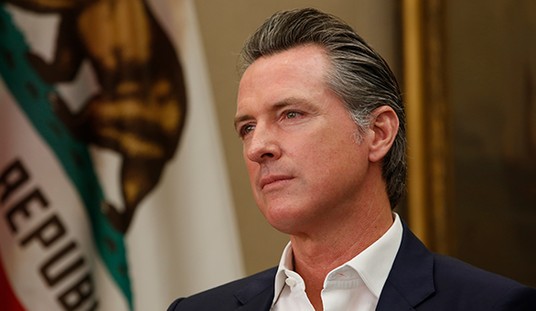Washington’s 2021 legislative session is scheduled to begin on January 11th, but most of the proceedings are going to take place virtually and not in person at the state capitol building in Olympia in order to mitigate the spread of COVID-19. Those plans aren’t sitting too well with the group Washington Three Percent, who’ve announced plans to occupy the state legislative building when the session kicks off in a couple of weeks.
Matt Marshall, founder of the Washington State Three Percenters, announced in an email to members that they should plan to “station themselves” at the Olympia capitol building as part of a “Legislative Lockout.”
According to their stated plan, the militia plans on entering the chambers of the Washington Senate and House of Representatives, which are both closed to the general public under health guidelines related to the COVID-19 pandemic.
The Washington House will be meeting remotely for the duration of next year’s session while the Washington Senate intends to meet remotely and in-person.
The group Liberty, At All Hazards, intends on protesting at the capitol on January 10 which its founder, Tyler Miller, says is being backed by the Washington Three Percenters.
“We are merely there to assert the constitutional requirement that all floor sessions of the legislature remain open to the public,” Miller said. “If the legislature were to revise their plans such that the public was allowed inside the building, even in a limited manner, and to offer some form of in-person committee hearings option, then we would cancel and/or cease our event.”
In a recent blog post Miller outlined his objections to the virtual session and the closure of the capitol building to the public. The whole thing is far too long to quote in its entirety, but there are a couple of bits I want to highlight. First, Miller acknowledges the claims by lawmakers that hosting a virtual session is going to be great for transparency and public participation.
According to apologists for this plan, going to an exclusively on-line format has the potential to actually increase public participation in the legislative process. They argue that without the burdens of having to drive (perhaps hours) to Olympia, taking time off of work, or other any other logistical issues that can keep people from attending in-person, there is a greater likelihood of hearing from more people. Not only more people, but a more diverse representation of views as well. They also will claim that this new procedure will enhance public accountability, since (in theory at least) more public record will be created. “Back room conversations” that normally happen during and in-between theses hearings will now presumably occur via some form of electronic communication (text message, messenger, etc.), and such communication would be liable to public records requests.
Miller has two main objections. First, he points out that a virtual session will deny citizens a presence during the legislative session. A packed gallery full of Three Percenters or Moms Demand Action activists is mean to have an impact on lawmakers, but those citizen activists are being denied their ability to participate fully in the legislative process because the legislative building has been declared off-limits to the public for the foreseeable future.
As to the chances for greater public participation, Miller instead sees disaster on the horizon.
Whether it’s poor connectivity, ill-planned system updates, or whatever fill-in-the-blank technological issue you could imagine or have personally experienced, the probability that technological problems will massively hamper public participation is high. The likelihood of the occurrences happening randomly or accidentally are high in themselves. Add to that the reality that some amount of “controlled chaos” may happen in order to “move things along,” and you have not expanded access, you have created censorship via plausible deniability.
Given the willingness we have witnessed, especially of late, for those on the left-side of political thought to fully embrace outright censorship and thought control, why should we expect anything even close to equitable treatment in a legislative process controlled by those same people? Only now they have at their disposal a method of curbing, controlling, and stifling participation while claiming that they’re at least “trying” to give equal time. Am I arguing that similar frustrations aren’t experienced under normal, in-person circumstances? No, not at all. But the degree to which it can happen and the scrutiny which it endures when it does happen are incomparable between the in-person and totally virtual options.
It seems to me that Miller’s complaints, along with his belief that the state legislature is using “debatable” legal tactics to avoid meeting in person, should result in a lawsuit challenging the legality of the virtual session. Instead of using the courts, however, Miller’s spearheading the “Legislative Lockout“.
Citizens of Washington State. The current plan of the Governor and Legislative Leadership for the upcoming legislative session manifestly violates Article 2, Section 11 of the Washington State Constitution. Under Article 1, Sections 1, 4, 24, and 29, and by Natural Law, it is our Right and our Duty to prevent these Officers of the State from doing so.
Unless and until the Governor and Legislative Leadership agree to restore full public access to the Legislative buildings, including the chambers of the House and Senate, and including in-person public hearings on all proposed legislation, the Citizens of the State shall station themselves at all entrances to the main Legislative Building (commonly called the Capitol) of the State of Washington.
We will NOT take violent offensive action of any kind, but we WILL be prepared to defend ourselves while demanding the State follow the Constitution.
We will maintain this action until all Constitutional provisions are ensured.
I’m a big believer in the power of civil disobedience, but I’m also a big fan of the rule of law, and it seems to me like the groups planning the Legislative Lockout should really try to argue their case in court first. If the virtual session “manifestly violates” Article 2, Section 11 of the state constitution, then it should be a no-brainer for the judge hearing such a challenge, but I’ve been unable to find any lawsuit filed by Miller or Liberty, At All Hazards over the closure of the capitol building to the public.
Of course, it may not be as obvious a violation of the state constitution as Miller claims. Here’s what Article II, Section 11 actually says:
Each house shall keep a journal of its proceedings and publish the same, except such parts as require secrecy. The doors of each house shall be kept open, except when the public welfare shall require secrecy. Neither house shall adjourn for more than three days, nor to any place other than that in which they may be sitting, without the consent of the other.
Technically, the constitution says nothing about the doors of the capitol building being open, just the doors of the House and Senate chambers. Even if you want to go by the spirit of the law and not the letter, the fact that all public hearings are going to be streamed live with the chance for the public to comment virtually would likely satisfy the constitutional requirement in the eyes of the law, regardless of Miller’s objections about tech issues.
Likely, but it’s not a certainty. This isn’t a cut-and-dried case, which is another argument in favor of a legal challenge rather than direct action as the next step. By keeping their case in the court of public opinion rather than a court of law, Miller and his cohorts now need to persuade people of the righteousness of their cause.
Because they haven’t availed themselves of their legal avenues for a redress of their grievances, however, and given the murky grey areas of the law involved, I think they’re going to have a very difficult time convincing large numbers of the general public of the necessity of occupying the capitol as a logical next step.
I’m more than sympathetic to the cause, and I appreciate the dedication to state’s constitution as well as the broader pushback against the COVID lockdowns in place. As a tactic, though, my guess is that the Legislative Lockout will generate some headlines (and possibly some arrests) but isn’t likely to achieve the stated goal of legislators returning to a traditional in-person session.









